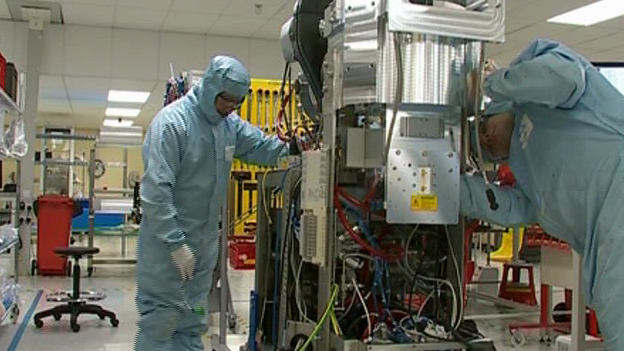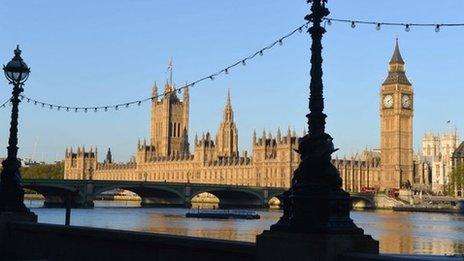Devolution 'rush' warning on growth from CBI leader
- Published

Economic growth should be one of the main goals of devolution, John Cridland says
Rushing to give more power to the UK's nations and regions could damage growth, a business leader has warned.
CBI director general John Cridland said firms want proof that devolution would boost jobs and cut red tape.
Devolution must be "careful, considered and transparent", not done in "rushed backroom deals between politicians and civil servants", Mr Cridland said.
He also warned that different tax rates across the UK could create unhealthy competition, harming inward investment.
Business leaders want to play a "constructive role" in the debate over the transfer of powers from Westminster to the UK's nations and regions, Mr Cridland told an event run by think tank IPPR North, external in Manchester on Thursday.
But he added: "Business needs greater clarity - both around existing devolution settlements and the potential new powers on offer."
He called for the leaders of devolved governments to promote "pro-growth" policies and for local council leaders to work more closely with neighbours in combined authorities.
Jo Ashburner, chief executive of Red Dragon Flagmakers in Swansea, said she was "cautious" about deadlines on devolution, such as Welsh Secretary Stephen Crabb's call for the parties to agree a common plan by St David's Day.
"A national identity is one thing, business is another and for a business to succeed we have to work cross-border."

Analysis by BBC Wales' business correspondent Brian Meechan
This is a pretty thoughtful, considered intervention by John Cridland.
He is not saying "no" to further devolution, he is effectively arguing that getting it right is more important than doing it quickly.
Many in the business world will appreciate his caution over, what he calls, the "devolution by deadline" approach.
Others will argue that the UK is an overly centralised country and now that we are talking about devolution not just to its nations but also to its regions, it's important not to lose momentum while waiting for a perfect solution.
His general point though that businesses have got to be involved in the debate will be welcomed.
The Scottish independence referendum accelerated the discussion over powers in Wales and England.
The CBI got its fingers burned in that campaign - when it first backed, then pulled away from the official No campaign.
Some of its public sector members including universities left the organisation, concerned by being seen to take sides in a political argument.
The CBI represents a wide range of views from different sizes of business in different sectors with public organisations amongst its members too.
It's got to make sure it gets businesses voice heard in the big political and economic debates like devolution.
At the same time making sure it doesn't alienate any of its members with the positions it takes.
That's the tightrope it has to walk when it comes to politics.

- Published4 February 2015

- Published17 December 2014

- Published3 November 2014

- Published22 October 2014
